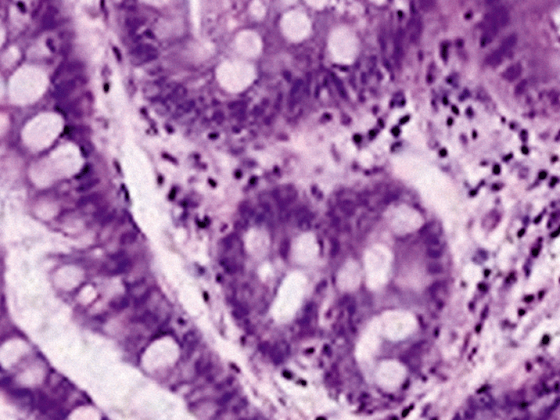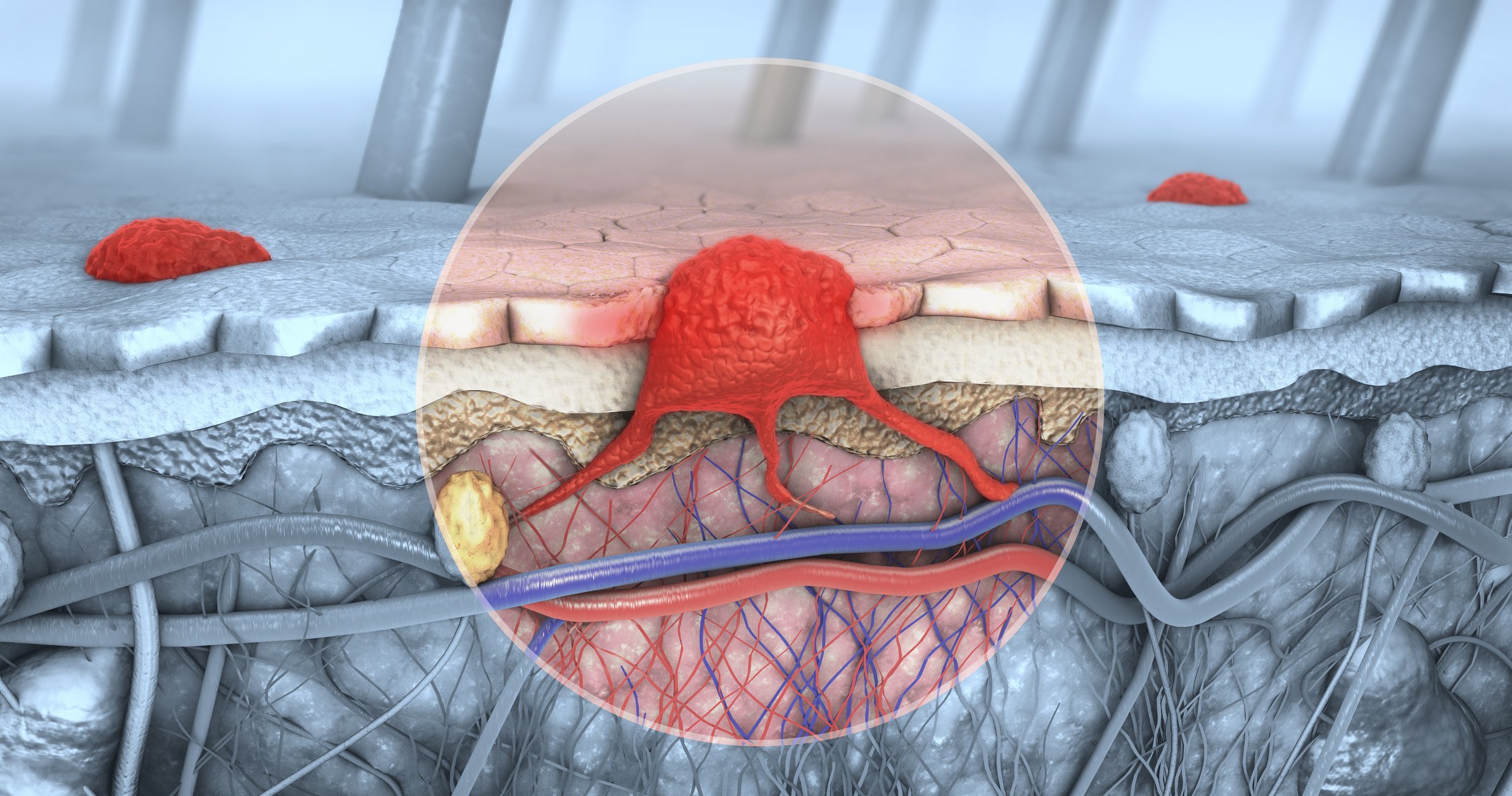At ASCO-GI in San Francisco, one of the topics was pancreatic adenocarcinoma. The so-called “borderline resectable” tumors were of particular interest. It is up for discussion whether primary surgery is actually useful here or whether neoadjuvant chemotherapy and chemoradiation may offer advantages. In addition, the progress of cytotoxic combinations was traced and potential future research avenues were identified.
(ag) The term “borderline resectable” was first used by the National Comprehensive Cancer Network (NCCN) in 2006 to characterize a specific group of patients, namely those with localized pancreatic adenocarcinoma and high risk for a positive resection margin and for early failure of therapy at de novo resection. This was followed in 2008 by a consensus conference aimed at standardizing the diagnosis and therapy of this specific patient group. However, an optimal multimodal algorithm has not yet been found.
In principle, “borderline resectable” means that there is evidence of mild to moderate venous or arterial involvement. In a completely resectable tumor, this involvement is absent; in an unresectable tumor, it is more pronounced.
Surgery as primary therapy?
“While primary surgical resection followed by adjuvant chemotherapy (and sometimes radiation) is currently the standard of care for patients with potentially resectable tumors, evidence suggests that this strategy does not work particularly well for cancers involving the mesenteric vasculature,” said Matthew H. G. Katz, MD, Texas. In a retrospective analysis of 279 patients with pancreatic cancer who underwent de novo pancreatectomy, Yamada et al. noted an increase in positive lymph nodes and resection margins and a decrease in survival of patients with tumors involving the portal vein, hepatic artery, or superior mesenteric artery (seen preoperatively on images). “Survival of patients with resectable disease was 24.4 months, whereas that of patients with portal vein involvement was 14.9 months and that of those with superior mesenteric artery involvement was 12.8 months [1],” Katz explained. “Other studies also confirm the poor prognosis of surgery as the primary treatment option in this specific population, which is why the administration of systemic chemotherapy and chemoradiation before pancreatectomy seems reasonable.”
Specifically, this strategy offers the following advantages:
- Early promotion of effective systemic therapy against a cancer in which micrometastatic disease spread is ubiquitous
- Potential for improved rate of R0 surgical resections.
- Improved functional status of the patient at the time of therapy
- Selection of patients with favorable cancer biology for the resection trial.
- Better tumor oxygenation and drug distribution for chemoradiation.
- Smaller radiation fields (compared to the adjuvant setting), resulting in less toxicity.
Open questions
Thus, the neoadjuvant strategy guarantees that all patients who later undergo surgery are treated according to a multimodality approach. According to Katz, several, mainly retrospective studies have shown that patients with a “borderline resectable” tumor benefit from prior systemic chemotherapy and/or chemoradiation or that survival rates improve [2]. However, the large variability within these studies regarding patient characteristics, treatment modalities, algorithms, and calculation of outcome does not allow conclusive confirmation and leaves some questions unanswered, e.g., what are currently the optimal cytotoxic agents and radiation therapy strategies. And how long they should be applied. Encouraging clinical response rates were observed with 5-fluorouracil, leucovorin, irinotecan, and oxaliplatin (FOLFIRINOX) in the preoperative setting [3]. Is administration for four to six months, as usually recommended in the adjuvant setting, mandatory or reasonable for systemic chemotherapy before pancreatectomy? “Prospective studies are urgently needed to establish a standard and clarify the issues,” Katz concluded.
Systemic Therapy – Where does the path lead?
Eileen E. O’Reilly, MD, New York, also referred to the study by Conroy [3], who compared 5-fluorouracil, leucovorin, irinotecan, and oxaliplatin (FOLFIRINOX) with gemcitabine as first-line therapy for patients with grade 0-1 metastatic pancreatic adenocarcinoma. The FOLFIRINOX combination showed better overall survival (11.1 vs. 6.8 months, p<0.001), progression-free survival (6.4 vs. 3.3 months, p<0.001) and tumor response (31.6 vs. 9.4%, p<0.01). According to O’Reilly, these results have led to the inclusion of FOLFIRINOX in the standard of care for metastatic pancreatic adenocarcinoma. Furthermore, as mentioned, the combination is also being investigated in the locally advanced, unresectable, borderline resectable and adjuvant setting. Enthusiasm was somewhat dampened by the increased toxicities compared to “single-agent” gemcitabine.
“Recently, von Hoff et al. presented the results of a randomized phase III trial [4]. Similar to the results of the FOLFIRINOX trial, the combination of albumin-linked paclitaxel (nab-paclitaxel) plus gemcitabine showed significantly better survival and response rates compared with gemcitabine alone, and again, its use in other settings, such as advanced forms, is being investigated. This is partly in combination with other new agents,” O’Reilly explained. “At present, then, two standard cytotoxic options are available for the therapy of untreated pancreatic adenocarcinoma, although FOLFIRINOX seems to perform slightly better as initial treatment in terms of overall survival, but the combination of nab-paclitaxel plus gemcitabine seems more appropriate for a broader population. In any case, the patient should be educated about both options and the toxicity and administration profiles of the two therapies should be compared for the individual case. Nevertheless, only when disease-specific biomarkers are identified that confirm a better response of a given population to either regimen will personalized approaches emerge [5].”
Molecular and genomic characteristics
Pancreatic adenocarcinoma is characterized by four major common oncogenic mutations in KRAS, SMAD4, p53, and TGF-beta, which have not been widely exploited therapeutically to date. According to O’Reilly, there is still a great need for research in this area. In a small subset of patients with a BRCA1, BRCA2, or BRAC2(PALB2) mutation, platinum-based therapy and PARP inhibition may have a role [6, 7]. However, these approaches are still purely experimental.
Glimmer of hope on the horizon?
“To summarize: Various cytotoxic combinations have been added to the standard treatment of advanced pancreatic adenocarcinoma in recent years and are currently being integrated into the therapy of all stages of the disease. There are new approaches to complement these cytotoxic combinations with molecular targeting agents and to test immunotherapeutic options. Some of these are quite promising,” O’Reilly concludes.
Source: “Pancreatic Cancer,” General Session 5 at ASCO GI -Gastrointestinal Cancers Symposium, January 16-18, 2014, San Francisco.
Literature:
- Yamada S, et al: Pancreas 2013; 42: 1004 -1010.
- Katz MH, et al: Ann Surg Oncol 2013; 20: 2787-2795.
- Conroy T, et al: N Engl J Med 2011; 364: 1817-1825.
- Von Hoff DD, et al: N Engl J Med 2013; 369: 1691-1703.
- Fong ZV, Winter JM: Cancer J 2012; 18: 530-538.
- Lowery MA, et al: Oncologist 2011; 16: 1397-1402.
- Fong PC, et al: N Engl J Med 2009; 361: 123-134.
InFo Oncology & Hematology 2014; (2)1: 23-25.











